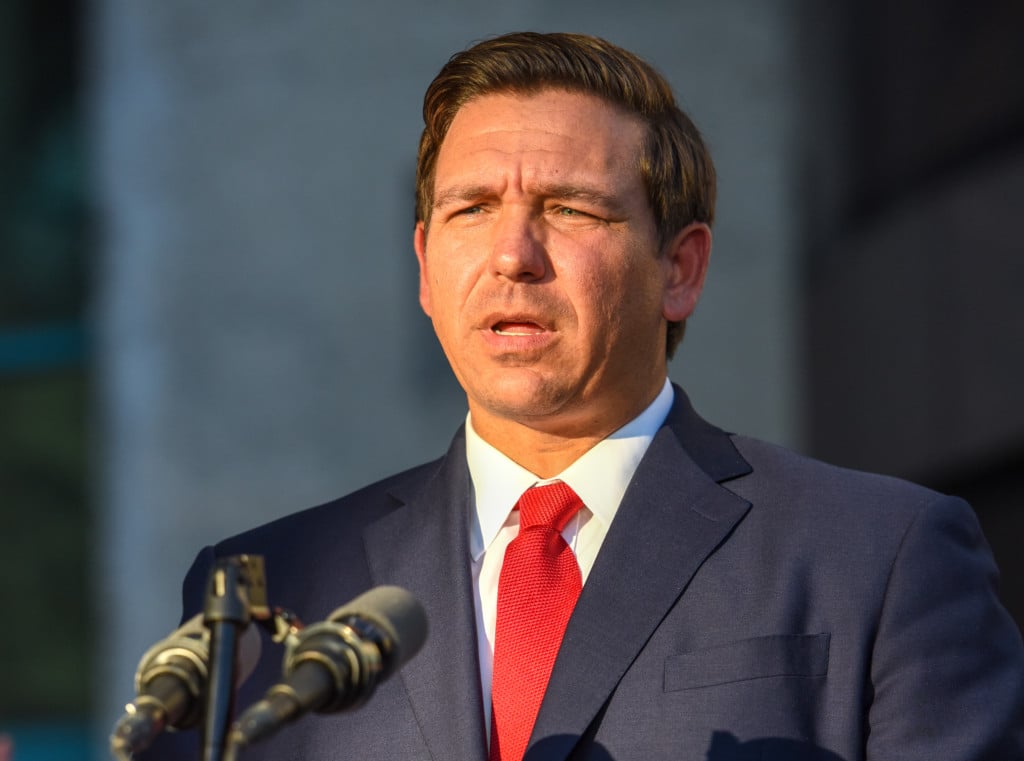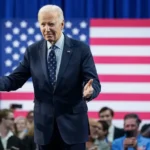
Published March 16, 2023
I know of no Republican governor from Ronald Reagan’s era in California to the present with a more impressive education record than Ron DeSantis. As Rich Lowry puts it, DeSantis isn’t just building a dike to contain the woke tide, he’s aggressively rolling that tide back. DeSantis has blocked action civics, banned K–12 CRT, taken age-inappropriate discussions of gender identity out of schools, helped elect reformist school-board candidates, courageously said no to the College Board’s biased AP African American Studies course, initiated important university-accreditation reforms, appointed college and university trustees committed to transformative change, pushed back against federal imposition of CRT and action civics, and may be the only governor to have genuinely replaced Common Core. To top it off, H.B. 999, sponsored by Representative Alex Andrade and carrying DeSantis’s latest and most ambitious higher-education-reform plans, promises major and much needed changes to our colleges and universities.
I’ve defended H.B. 999 from critics on issues such as expanded powers for university presidents and the legislature’s ability to shape general education. I’d be remiss, however, if I didn’t add that I have some concerns about this ambitious bill. Inevitably, a forward-leaning education reformer is going to overstep a time or two. That’s what’s happened, I think, with the section of the Stop WOKE Act that bars promotion of CRT in college classrooms, and with some related provisions of H.B. 999. A federal judge has already enjoined the Stop WOKE Act’s ban on the promotion of CRT in public university classrooms. Portions of H.B. 999 may run into similar trouble. To make sense of this issue, the Stop WOKE Act and H.B. 999 need to be discussed in tandem.
I doubt that Florida’s claim of power over the content of college teaching was a carefully planned move. On the contrary, Florida fell into this assertion at least partly by happenstance. State CRT laws (Florida’s Stop WOKE Act included) were modeled on President Trump’s Executive Order (EO) barring CRT from federal employee training and contracting. The contracting section of the Trump EO barred federal financial assistance to universities in which teachers promote CRT in the classroom. That prohibition was questionable, but at least the Trump EO didn’t formally silence professors. It simply deprived their universities of federal subsidies. States, in contrast, directly control their public universities. So, for a state to bar professors from favoring CRT would straightforwardly violate academic freedom.
That’s why groups such as FIRE (Foundation for Individual Rights and Expression) advised states to stick to K–12 and remove college-classroom CRT bans from their legislative versions of Trump’s EO. Every state but Florida took that advice. Usually, Florida’s forward-leaning stance on education reform works. On this issue of state control over the content of college classroom teaching, however, Florida ought to have held back.
When the higher-education provisions of the Stop WOKE Act were challenged in court, Florida had to come up with a defense for its claim of power over the college classroom. The defense it chose was both weak and troubling. Florida argued that the speech of professors at public universities is government speech, in the same sense that the speech of K–12 teachers is government speech. Judge Walker’s opinion in that case explains the thin to nonexistent legal foundation for that claim. Rather than rehearse Walker’s decision, however, I want to show why the law treats K–12 and college teaching differently.
K–12 students are minors, whereas college students are adults. Although K–12 students may be sent to a private school if their parents can afford it, in the first instance, K–12 students are required to attend public school. In other words, K–12 students are a captive audience, whereas college students choose both their school and their courses. K–12 students are subject to the authority of whichever teacher they’re assigned to. In contrast, college students can compare the views of one professor with another. K–12 teachers have little in the way of subject expertise. College professors, in contrast, are hired for their expertise, and are granted freedom to research and teach as they see fit precisely because of that expertise.
These are the reasons why college professors have academic freedom while K–12 teachers do not. It would be an abuse of authority to subject a captive audience of susceptible minors to the intellectual and political preferences of the teacher they happen to be assigned to. That’s why K–12 teachers must teach what the government tells them to teach. But college students are adults, with a substantial ability to carve out their own educational path — while their teachers have subject expertise and the freedom to convey it as they see fit.
In sum, K–12 teachers don’t have academic freedom, but college professors do. At least that’s how the matter has been understood for a very long time. If Florida is right, however, and professorial speech is government speech, then college professors don’t have academic freedom. If accepted by the courts, Florida’s defense of the higher education provisions of the Stop WOKE Act would spell the end of academic freedom for college professors. Poof! What had seemed to be a constitutionally protected category of free speech would go up in smoke.
Florida may have almost accidentally fallen into its assertion of legislative power over the college classroom, but there’s more behind Florida’s claim than mere happenstance. Florida’s argument encapsulates a commonly held view among state legislators: “We pay for it, so we control it.” That formula works in almost every case, including K–12. But when it comes to the content of teaching at public universities, the state isn’t paying professors to be government spokesmen. It’s paying to set up a system of free intellectual exchange. When conservatives supported state-level campus-free-speech bills a few years ago, they understood this point quite well. We shouldn’t forget it now.
Most of the academics screaming bloody murder over DeSantis and academic freedom are hypocrites, of course. They don’t believe in the classically liberal presuppositions or practices on which academic freedom rests: resisting the temptation to indoctrinate students, willingness to explore competing points of view, hiring faculty based on competence rather than ideology. The lion’s share of America’s professors abused their academic freedom to hire like-minded ideologues. That turned universities into indoctrination factories, and a train of shout-downs and a de facto bans on conservative views followed. Illiberal professors cry “academic freedom” only when it suits them. They’ve brought this reaction on themselves.
That said, if we destroy academic freedom to shut down these ideologues, there will be nothing left to save. Professors will be reduced to mouthpieces of the state. The content of college teaching will shift with every election. A college education will become even more of a joke than it already is. The sector will be destroyed. I’m not ready to go there.
So much for the higher-education provisions of the Stop WOKE Act. What about H.B. 999? Does the newer bill also treat professorial speech as government speech? It does at points, I think, but the extent to which this is so remains ambiguous. That’s because H.B. 999 concentrates on defining what can and cannot count as a lower-level general education course. Shaping the general-education curriculum is something that legislatures legitimately have the power to do.
So, when H.B. 999 says that general education courses “must not include curriculum” drawing upon critical race theory, critical ethnic studies, radical feminist theory, queer theory, critical social justice, or intersectionality, is the bill simply defining which courses can and cannot fulfill a general-education requirement, or is it also forcing faculty to inhibit their classroom discussions?
Let’s say that a professor in a general-education course is discussing an assigned primary-source reading on 18th-century family life. Now imagine that this professor wants to comment on the material from the perspective of radical feminist theory. Is she prohibited by H.B. 999 from doing so? And if a student then asks the professor for a reference to some radical feminist scholarship that explains the point in question, can the professor cite that article or book? If she is prohibited by H.B. 999 from commenting or offering the reference, then the bill violates academic freedom. In effect, the bill here would be treating professorial speech as government speech. But if H.B. 999 merely prohibits courses that assign radical feminist readings from fulfilling general-education requirements, then the legislature is likely within its rights.
FIRE is persuaded that H.B. 999 “would require faculty to censor their discussion and materials in general education courses.” I see FIRE’s point, although I think it’s more debatable than FIRE does. At minimum, these provisions require clarification. But why should Florida bother to offer clarification if it truly believes that professorial speech is government speech? In that case, the state has total control of the classroom. And why should FIRE trust Florida to keep to a narrow intervention, so long as the state maintains its right to dictate the content of college teaching?
There’s another even more problematic provision of H.B. 999. The bill abolishes majors and minors that utilize critical ethnic studies, radical feminist theory, queer theory, critical social justice, intersectionality, and other such approaches. From the perspective of academic freedom, this is even more troubling than the general-education provisions.
I am not opposed to abolishing “studies” programs (although whether Florida is trying to abolish racial-, ethnic-, and gender-studies programs, or simply trying to purge them of critical theory, is unclear). If abolishing the so-called studies programs is what Florida intends to do, the way H.B. 999 goes about it seems to me to be mistaken.
State governments are permitted to abolish entire academic programs, either because a state’s resources are limited and choices must be made, or for some valid academic reason. The courts, however, might strike down an attempt to abolish an academic program with the express purpose of suppressing ideas of which the government disapproves. H.B. 999 seems destined to draw that kind of challenge, and the ban on certain theories leaves the state in a poor position to defend itself. If Florida can legitimately treat professorial speech as government speech, of course, it’s got nothing to worry about. But I don’t believe Florida has that right, in which case the ban on certain majors will likely be struck down.
There are plenty of legitimate academic reasons to abolish some, or all, of the “studies” programs. By their very structure, these programs tilt toward political activism rather than scholarship. They also discourage academic work that challenges the assumptions behind their ruling ideology.
When I first wrote about AP African American Studies, I cited an academic paper by a black studies professor who called this field an “anti-discipline,” precisely because it was designed to be activist and political, rather than detached and scholarly. All the “studies” programs make similar claims, which substantiates a case for abolishing these programs. Scholars of women’s history and such could still be hired by the appropriate traditional disciplinary department, whatever their theoretical approach. No points of view would be banned on principle. That would be more academically justifiable, and more likely to withstand judicial scrutiny.
One option for H.B. 999, then, is to bar academic programs from being organized around race, ethnicity, gender, or sexuality. Or, if actually abolishing the so-called studies programs by law in one fell swoop is not what Florida desires, H.B. 999 could encourage the measuring of programs and departments against the university’s declared mission on a case-by-case basis. This, by itself, would allow boards of governors to shut various departments down.
H.B. 999 just passed through a committee of the house in amended form. Changes to the text have significantly eased yet another problem in the initial draft. The original bill prevented public universities from expending any funds to promote CRT or DEI. That broad prohibition could have prevented student groups from inviting speakers who support CRT, a clear violation of campus free speech. The amended version of H.B. 999, in contrast, contains a carve-out that allows pro-CRT student groups to invite any speaker they please. Yet this provision continues to worry me. There are legitimate concerns about the ability of faculty to advise student groups that support CRT. And what about university libraries? Can they spend university funds on books that promote CRT?
On top of that, the amended bill now blocks any spending on “government speech” that espouses DEI. Given Florida’s claim that professorial speech is government speech, this would appear to cut off university spending on pro-CRT faculty. I doubt this is what the amendment intends, but it does seem to be its effect.
Rather than banning spending on all CRT–DEI related activities, then creating carve-outs when problems emerge, it’s more prudent to specify exactly what is being prohibited. That avoids unintended consequences. H.B. 999 could explicitly bar CRT–DEI in employee training, student orientation, or in any dedicated administrative office. That pretty much covers what’s at stake. It also avoids the risk of prohibiting librarians from ordering radical feminist or pro-CRT books. As someone who’s job includes reading CRT in order to criticize it, I have a fondness for well-stocked libraries. I need to read the other side of our national arguments, and so do our students.
The precise legal status of academic freedom is somewhat vague. That means we don’t know exactly how the courts will resolve these disputes. I’d be awfully surprised, however, if the Supreme Court were to accept Florida’s defense of the higher-education provisions of the Stop WOKE Act. If professorial speech is government speech, then academic freedom is dead. I just don’t think the justices will go for that.
What about the politics of all this? DeSantis has lately been pushing back against bogus charges of K–12 book banning. Well, how would that go if university librarians were to announce that, in the wake of H.B. 999, they can no longer order books that support CRT, DEI, or the litany of other disfavored theories listed in the new law? College-educated suburban swing voters aren’t going to like the idea of killing off academic freedom. This issue may not be top of mind for voters right now, but give the media some time.
If DeSantis becomes the Republican presidential nominee, prepare for non-stop lectures on academic freedom from CNN, MSNBC, etc. The Left is straining to paint DeSantis as an authoritarian. They’ve already cried wolf about two non-violations of academic freedom in H.B. 999. Practically every other day we see a new false charge against DeSantis. Florida’s ill-considered claim that professorial speech is government speech is pretty much all the Democrats have got. You can bet they’ll use it to validate the rest of their bogus case.
DeSantis would be smart to parry that attack by dropping his defense of the higher education provisions of the Stop WOKE Act and tweaking H.B. 999 to make it consistent with academic freedom. Don’t wait until the height of the presidential campaign to fix this problem. By then it may be too late.
Stanley Kurtz is a Senior Fellow at the Ethics and Public Policy Center. On a wide range of issues, from K-12 and higher education reform, to the challenges of democratization abroad, to urban-suburban policies, to the shaping of the American left’s agenda, Mr. Kurtz is a key contributor to American public debates. Mr. Kurtz has written on these and other issues for various journals, particularly National Review Online (where he is a contributing editor).
Stanley Kurtz is a Senior Fellow at the Ethics and Public Policy Center. Beyond his work with Education and American Ideals, Mr. Kurtz is a key contributor to American public debates on a wide range of issues from K–12 and higher education reform, to the challenges of democratization abroad, to urban-suburban policies, to the shaping of the American left’s agenda. Mr. Kurtz has written on these and other issues for various journals, particularly National Review Online (where he is a contributing editor).












